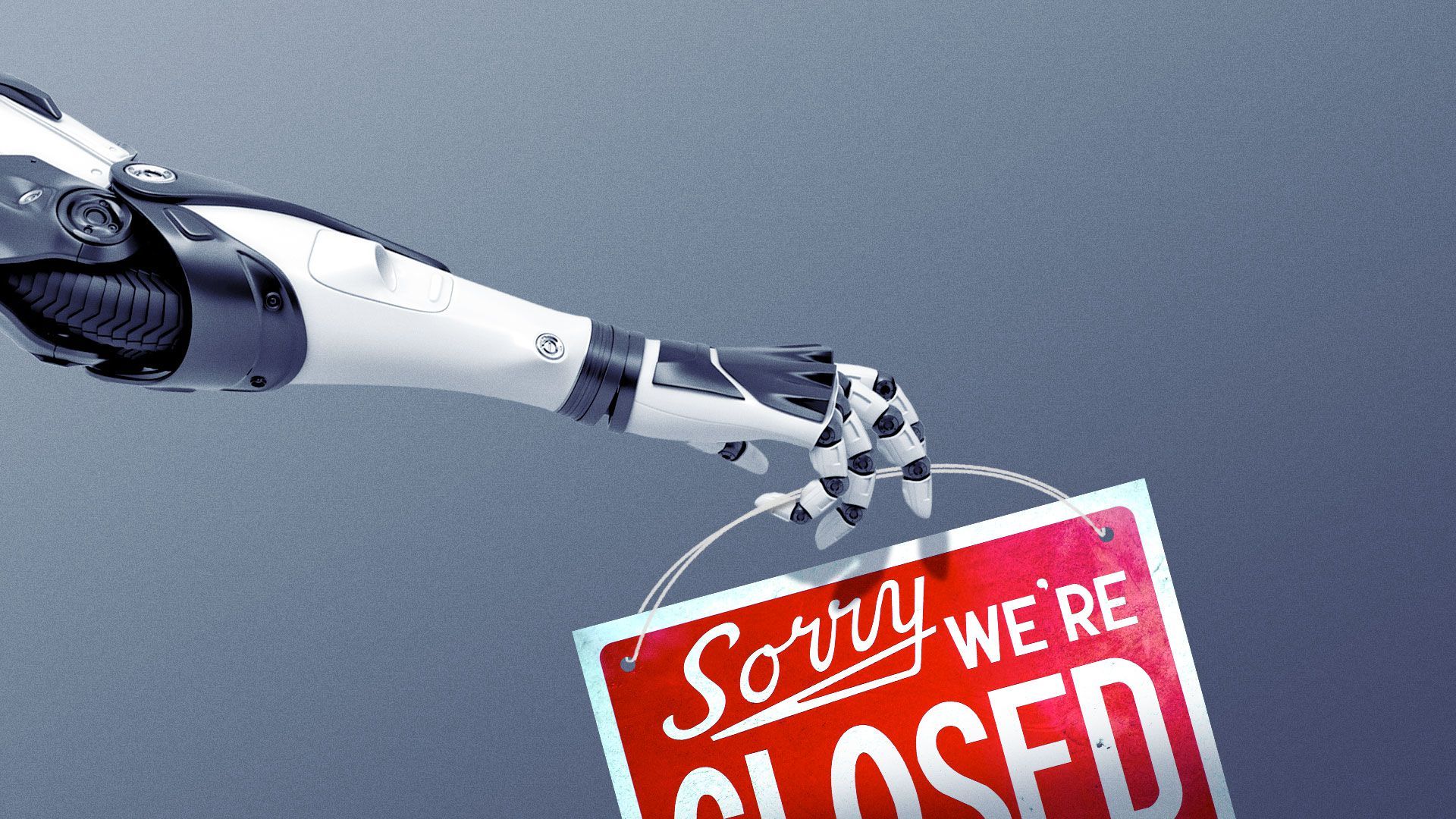Robots vs. retail workers
Add Axios as your preferred source to
see more of our stories on Google.

Illustration: Eniola Odetunde/Axios
For years, retail has been lurching toward automation. Last week, Walmart took a significant step back.
Why it matters: In a rare win for retail workers, Walmart decided to take shelf-scanning robots out of its stores in favor of humans. But automation is still coming faster for retail jobs than for most other occupations, experts say.
Driving the news: Walmart had deployed 6-foot-tall shelf-scanning bots from Bossa Nova Robotics in 500 of its 4,700 U.S. stores before the retail titan decided to end the contract. The bots' job was to take stock of inventory.
- Walmart ended its partnership with Bossa Nova because it found that humans could do that job just as well, the Wall Street Journal's Sarah Nassauer reports.
- Bossa Nova laid off around 50% of its workforce after losing the contract, per Nassauer.
But, but, but: When it comes to retail jobs, "in the longer term and at scale, the economics favor automation," J.P. Gownder, an expert on automation at Forrester, told me a year ago. And he stands by that projection.
- "There are always bumps along the way in the launch of new technology categories," he says. "There will be vendors who lose big contracts along the way."
- But Walmart is still rapidly automating other types of jobs at its stores and warehouses. And there are other retail chains, like Schnucks and Giant, that continue to use shelf-scanning bots, Gownder notes.
- On top of that, social distancing guidelines might make some retailers even more eager to replace human in-store workers with robots, he says.
